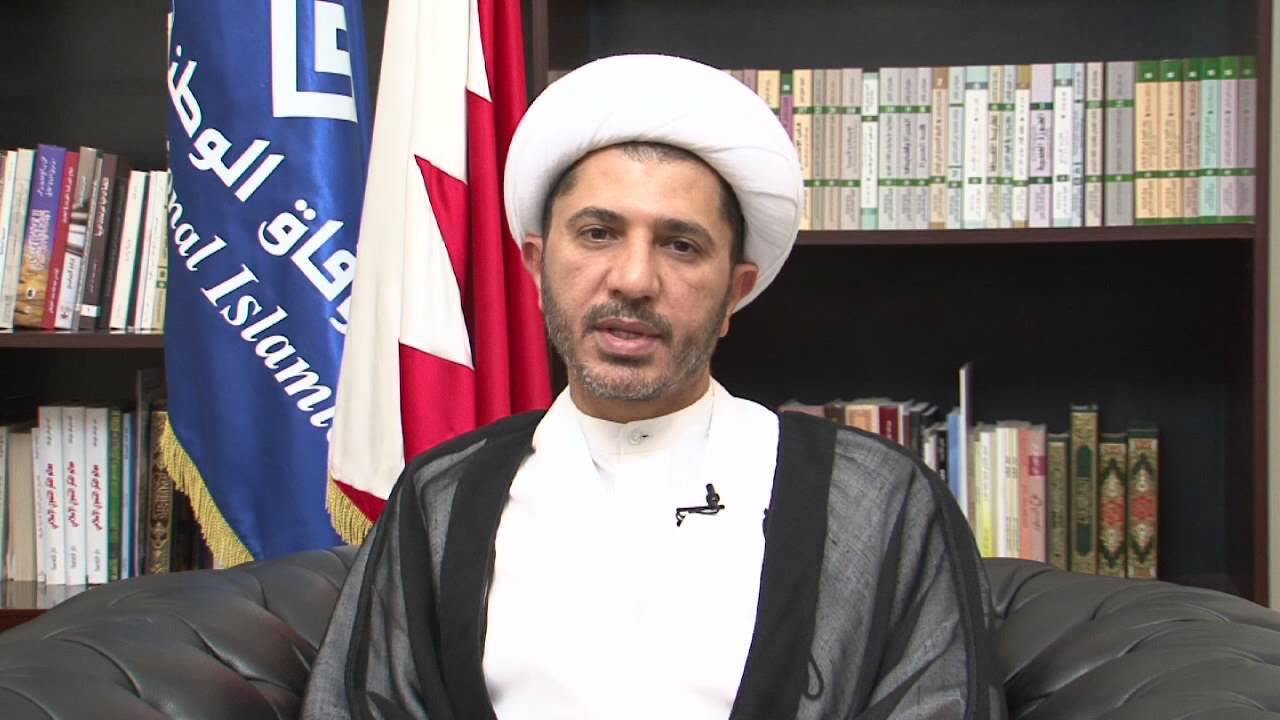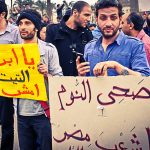by Emile Nakhleh
Now that the Bahraini regime has exacted its revenge by sentencing Sheikh Ali Salman, secretary general of the predominantly Shi’ite pro-reform al-Wefaq party, to four years in prison, the al-Khalifa ruling family should decide which of the two available paths to take. It could remain on the current path of repression and increasing international isolation. Or it could explore creative, peaceful strategies to engage the Shia majority on the basis of human dignity, respect, and fairness. Since al-Wefaq has always been committed to peaceful dialogue with Al Khalifa, the search for common ground should not be insurmountable.
By arresting and convicting Sheikh Salman, who has been the internationally recognized symbol of peaceful protest, the Bahraini government has sought political retribution against al-Wefaq for boycotting the recent parliamentary elections. The ruling family, especially Crown Prince Salman bin Hamad, were said to be very angry at al-Wefaq’s decision against participating in the elections. As an expression of a tribal vengeance, the regime arrested Sheikh Ali Salman on trumped-up charges, refused to allow his legal team to refute the charges in court despite ample evidence, and sentenced him in a hasty, unlawful legal procedure.
After Sheikh Salman’s arrest, the United Nations, many Western countries, and international human rights organizations expressed “deep concern” and urged Bahrain to release him, to no avail. In a statement from Washington, the U.S. Government said it was “deeply concerned” by the Bahraini government’s action.
The regime ignored these entreaties and proceeded with his trial. Similarly, it dismissed the persistent international criticism of the arrest and conviction of other prisoners of conscience, including Nabeel Rajab, Maryam and Zainab al-Khawaja, and their father Abd al-Hadi al-Khawaja, who is currently serving a life sentence. These dissidents have been convicted for political reasons and have not been involved in any seditious activities against the al-Khalifa rule.
The Broader Context
In order to understand the Bahraini regime’s defiant position, it would be useful to examine the broader domestic and international contexts that surround Sheikh Ali Salman’s case. Domestically, the arrest and conviction must be analyzed in light of several key issues.
First, the ruling family has opposed any genuine reform even though demands for such reform have been persistently peaceful.
Second, the Crown Prince’s position within the family hierarchy has been increasingly precarious, especially in light of recent rumors that the succession to the throne might be rearranged in favor of his brother Nasser. Such a possibility, along the lines of the Saudi change of succession, is forcing Crown Prince Salman to be more circumspect in dealing with the opposition and in using al-Wefaq’s refusal to participate in the recent elections as a justification for persecuting its head.
Third, Bahrainis are increasingly suffering from confrontation fatigue. More and more of them are accepting the argument that the regime, with Saudi help, crushed the 2011 uprising and that protesters are powerless in the face of the iron-fist repressive policies against the opposition.
Fourth, some members of the opposition have publicly acknowledged that their groups made some major mistakes in the past couple of years regarding the elections boycott and the prior conditions for dialogue with the government. The interview that al-Wasat newspaper conducted on April 19, 2015 with Munira Fakhroo was very telling for its candor and courage about the mistakes of the past and possible exit strategies out of the current impasse. Fakhroo, a respected Sunni academic and head of the central committee of the National Action Democratic Society (Wa’d), has been a vocal critic of the government’s atrocious human rights record. In the interview, she encouraged the opposition to re-examine its position toward the key principles in the Crown Prince’s dialogue document.
Fifth, unlike King Salman of Saudi Arabia, who was able to impose unprecedented succession changes, the Bahraini King Hamad is unable to buck the anti-reform, conservative bloc within his family. This bloc is represented by his uncle Prime Minister Khalifa, the two most prominent young “Khawaled” brothers—the head of the royal court and the commander of the armed forces—and even the Crown Prince’s other brothers, who are close to some of the young crown princes in neighboring Gulf Cooperation Council (GCC) states. King Hamad’s relatively weak position could change if certain scenarios occur: the recent Saudi succession is altered; the Prime Minister’s rumored ill health deteriorates; street protests in the capital Manama and Shia towns and villages turn more violent and deadly; the Bahraini economy takes a nosedive; and Saudi Arabia assumes a more active role in Bahrain’s family politics.
Sixth, the rise of radical Salafi jihadi ideology in Bahrain in the past three years, with the government’s tacit approval, has strengthened the anti-reform faction within the ruling family. Advocates of this ideology, who have fought in Syria with the Nusra Front and with the Islamic State, might in the long run consider the Bahraini regime as the “near enemy.” For now, however, they support Al Khalifa’s position against the Shia community whom they consider “rejectionists” or “apostates.” The Asalah movement, which represents the Salafi jihadi ideology in Bahrain, opposes any government concessions to the Shia majority.
Lack of International Pressure
Regionally and internationally, the regime feels empowered in its unjust action against Sheikh Ali Salman because of the tacit support it has received from Saudi Arabia and other GCC states. Most importantly, Washington and London have not rebuked al-Khalifa for its domestic repression. The Bahraini regime seems to believe that, because of the home porting of the US Fifth Fleet in Bahrain, the United States would remain tolerant of Bahrain’s unlawful practices against its citizens. In its pursuit of building a military facility in Bahrain and of selling British weapons to Bahrain, the British government similarly has been reluctant to criticize Bahraini domestic practices. British resident diplomats and the British Foreign Office have also maintained especially close and personal relations with the Bahraini king.
In a recent court case under the Freedom of Information Act , the British government argued strongly against the release of British diplomatic cables from Manama in the 1977. But the Information Tribunal ruled in favor of a partial release. A full release, the government and the court argued, would “have an adverse effect on relations between the UK and Bahrain.”
Marc Owen Jones, a doctoral student at Durham University, made the initial Freedom of Information Request for the release of a particular cable, which purportedly shows that the British government was aware of “egregious acts committed by the Bahraini security services.” At the time, a British officer by the name of Ian Henderson was in charge of the Bahraini security services. (I discussed Henderson’s legacy of torture in Bahrain on this blog two years ago).
The al-Khalifa regime cannot possibly buy the legitimacy of its people from Washington or London. Nor can it expect to rule for long through fear and terror. If the ruling family stays on this path, Bahrain will be no more than a “Banana Monarchy” supported by its Saudi, British, and American benefactors. Although such a strategy gives al-Khalifa breathing room and affords the monarch time to enjoy royal horse racing with the British Queen, in the long run King Hamad will realize that his own people are the true source of legitimacy for him and his successors. If he is not sure of this history lesson, he should go back and read his father’s speeches from 1971-3 when as Emir he decided to hold national elections and promulgate a constitution for all the people of Bahrain.
If the P5+1 and Iran conclude a nuclear deal and Iran emerges as an acceptable regional power, Bahraini-Saudi relations would undergo major changes in response. Iran would also begin to pay closer attention to the maltreatment of its co-religionists on an island a few miles away.
Sentencing the 50-year old secretary general of a mainstream political movement that has vowed to work within the system under the al-Khalifa umbrella is a mean-spirited political act that should not stand unchallenged. His release would be a sign that reason and reconciliation have overcome tribal bravado and vengeance. In this day and age, where the state is no longer the ruler’s fiefdom, al-Khalifa should reach out to their citizens. Mubarak, Saleh, Qaddafi, Ben Ali, and Assad should offer a sobering lesson.






Is it anything like the sham trials in Iran?